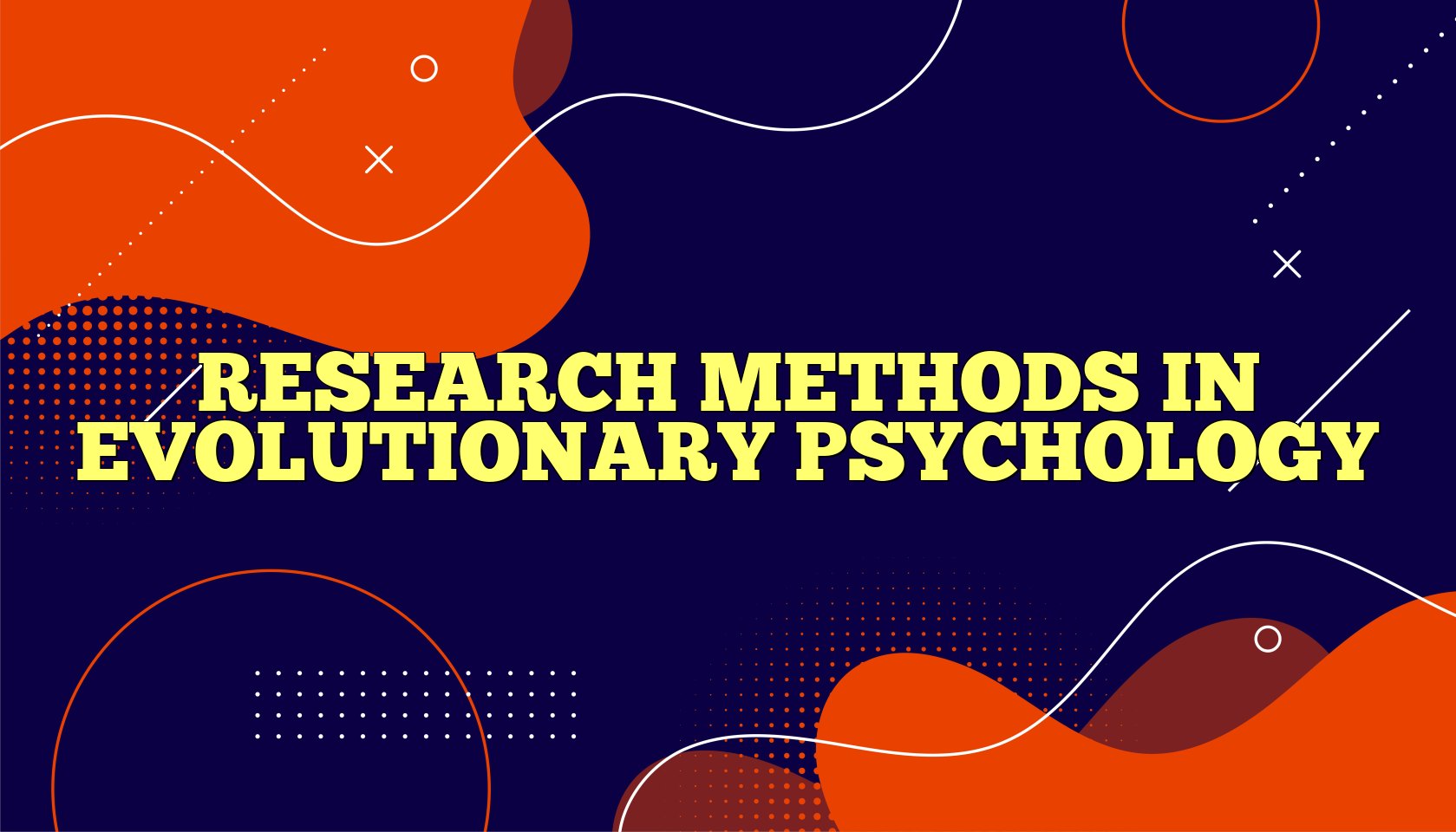Evolutionary psychology is a scientific discipline that seeks to understand the roots of human behavior and cognition through the lens of evolution. By examining the adaptive functions of various psychological traits and behaviors, evolutionary psychologists aim to uncover the evolutionary history and origins of human thought and behavior. To achieve this, specific research methods are utilized in evolutionary psychology, which allow for the investigation of how human behavior and cognition have evolved over time. In this essay, we will explore the various research methods used in evolutionary psychology to study the evolution of human behavior and cognition, and how they contribute to our understanding of the human mind.

One of the major goals of adaptationist research is to identify which organismic traits are likely to be adaptations, and which are byproducts or random variations. As noted earlier, adaptations are expected to show evidence of complexity, functionality, and species universality, while byproducts or random variation will not. In addition, adaptations are expected to manifest as proximate mechanisms that interact with the environment in either a generally obligate or facultative fashion (see above). Evolutionary psychologists are also interested in identifying these proximate mechanisms (sometimes termed “mental mechansims” or “psychological adaptations”) and what type of information they take as input, how they process that information, and their outputs.
Evolutionary psychologists use several methods and data sources to test their hypotheses, as well as various comparative methods to test for similarities and differences between: humans and other species, males and females, individuals within a species, and between the same individuals in different contexts. They also use more traditional experimental methods involving, for example, dependent and independent variables. Recently, methods and tools have been introduced based on fictional scenarios, mathematical models, and multi-agent computer simulations.
Evolutionary psychologists also use various sources of data for testing, including archeological records, data from hunter-gatherer societies, observational studies, self-reports, public records, and human products.
Major Areas of Research
Foundational areas of research in evolutionary psychology can be divided into broad categories of adaptive problems that arise from the theory of evolution itself: survival, mating, parenting, family and kinship, interactions with non-kin, and cultural evolution.